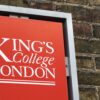150 days after President Prabowo Subianto’s inauguration, Indonesia is rocked by waves of student protests. Staff Writer Lara Bevan-Shiraz examines its national and international outlook and reports on her exclusive interview with Allesandro Bernama, Head of Political Affairs at the Indonesian Embassy in London.
A MINT country, the potential future face of ‘moderate Islam’, a new member of BRICS, and a cultural melting pot all brought under a national motto of ‘unity in diversity’, Indonesia is ascendant—what opportunities and risks will this bring to the dynamic archipelago?
Indonesia took part in 2024’s election marathon, but given its protracted interim process, it is only just into its new administration under President Prabowo Subianto. Prabowo previously contested the presidency twice and, once before that, ran as a Vice-Presidential hopeful. With a murky history involving allegations of human rights abuses, Prabowo is the son-in-law of the country’s former dictator, Suharto.
He finally secured the presidency, buoyed by the significant youth vote— reeling in these young voters with his adept social media campaigning, which presented him as a cat-cuddling, instantaneously viral dancing uncle. This is particularly significant in a country where over half the electorate is under 40 and given the country has a strong history of youth protest, with students playing a large role in the attainment of independence and the overthrow of the Suharto dictatorship and re-establishment of democracy in 1998.
However, despite enjoying 80% popularity ratings, Prabowo’s position is less than rosy. Cracks are beginning to show, with flagship social and fiscal policies from his campaign, such as free annual health check-ups and free school meals, showing signs of rashness in implementation. To add to that, his choices have displayed some hypocrisy: he created the largest cabinet in Indonesia’s history, yet has been ‘cutting excesses’ with severe budget cuts. Now rocked by protests over Prabowo’s move towards corporate and military involvement within the government, the government’s ‘honeymoon period’ may be up for reappraisal.
To explore this further, Roar News secured an exclusive interview with Mr. Allessandro Bernama, Head of the Political Division at the Indonesian Embassy.
Unity in Diversity

the Garuda Pancasila
Picture credit: Deni Hamdani via Wikimedia Commons
Indonesia is an archipelago encompassing over 17,500 islands with over 600 ethnic groups, and has the 4th largest population, including within this the world’s largest Muslim population. Indeed, the Indonesian word for archipelago, “Nusantara”, is used as a synonym for Indonesia, as well as being the name of its new capital, which is under development. According to Bernama, Indonesia is a country sprung from a collective imagination of community and consensus. He draws parallels between the Indonesian motto of “Bhinneka Tunggal Ika” (Unity in Diversity) and that of the European Union: “United in Diversity”. Bernama includes Indonesia’s “young democracy” within a global cohort including the US and France who established their independent republics much earlier. Bernama believes Indonesia to be a “vibrant democracy”, on an upwards trajectory with 22% female MPs, a female former President, and an 81.8% voter turnout, emphasising the country’s increasing “domestic strength” and “strong foreign policy”.
As a Christian, Bernama himself brings a personal perspective to the Indonesian principle of “Unity in Diversity”, stating that the Christian ‘minority’ actually comprises 11% of the population at 29 million, a figure greater than the entire population of Australia. During Pope Francis’ visit last year to Indonesia, the soft-opening of a “Tunnel of Friendship” between the Istiqlal Mosque and Our Mary of the Assumption Cathedral served as a symbolic demonstration of intercultural harmony.
Echoes of the Past: Seeking Equilibrium
Bernama highlighted the consistency of today’s Indonesian foreign policy with that of its past when dealing with global pressures. Indonesia was a founding member of the Non-Aligned Movement amidst the Cold War. Thus, Indonesia takes a similar approach to contemporary challenges. It seeks, he says, to become a “bridge builder”, employing a “million friends, zero enemies” approach: joining BRICS, G20, OECD, and ASEAN to “fill every possible space” as a leading voice in the Global South and beyond. This international positioning is evidenced in its projection abroad and participation in the global community—Indonesia provides the 5th highest number of UN peacekeepers and demonstrates active support for the Palestinian cause, having previously constructed a hospital and just announcing its intention to build another, as well as providing and supporting the distribution of aid. Bernama ties this to the foundations of the Indonesian state, recalling that independence is considered a “constitutional right”, compelling Indonesia to “uphold international law and humanity…as with other conflicts in the world”.
No Consensus Yet on Ratifying the Genocide Convention
When asked whether, in line with its advocacy for Palestinian rights, Indonesia would ratify the Genocide Convention, Bernama smiled and quipped: “this is the interesting part of the interview”. Genocide is a touchy subject in Indonesia, where recent national traumas, such as the anti-Communist massacres in 1965-66 and in East Timor between 1975-99, remain open wounds. Prabowo is himself enmeshed within this troubled history, accused of human rights violations during the Indonesian invasion of East Timor. Bernama deftly redirected towards the human rights conventions that Indonesia has ratified and underscored his country’s commitment to “uphold [these] principles and present our progress every year at the Human Rights Council in Geneva”. He also notes the complicating factor of the country’s heterogeneity—including in terms of its layered national and religious laws—but maintains that its national identity and flexibility allows Indonesia to “address [its] concerns together” both domestically and internationally.
When pressed regarding how Indonesia might work through its traumatic histories for survivors of its government perpetrated genocides and their families, Bernama leant into the concept of “pathways” in my question’s framing. He considers the last government to have been “very serious, engaging in conversation with the victims and relevant stakeholders”. In addition, he believes that the new government’s “breakthrough” is the creation of a Ministry of Human Rights: “shows serious commitment and more importantly institutional commitment, the government is doing something to reconcile history and converse with families.” He ties this into a political progression on multiple fronts, including “prosperity and education”, of which human rights form a part.
A Pragmatic Approach to Resistance?
In response to a question on the Indonesia Gelap (“Dark Indonesia”) protests, Bernama took a bright perspective, viewing the demonstrations as “[proving] Indonesia is a healthy democracy” and said he, both as a citizen and a diplomat, was “very pleased that youth are out voicing their concern”. Bernama regards this engagement with politics—both through participation in elections and “peaceful” street demonstrations—as a regular and necessary avenue to hold the government accountable. He also believes that the administration—aided by social media—“listens”, using as evidence the policy adjustments made by Prabowo so far in response to the “Indonesia Gelap” protests. However, if Prabowo thought he had weathered the week-long protest in February, the ongoing protests since Prabowo’s unilateral revision of the TNI Law permitting greater military involvement in state affairs show sustained discontent.
Asked about the recent sweeping budget cuts within government, Bernama naturally follows the governmental line: these are justified in their ends (supporting flagship programmes such as free school meals and national investment). Nevertheless, as throughout our interview, within his very answer, Bernama demonstrates the country’s strong attachment to its ideals and a concurrent drive to balance political policies and their attainment. He admitted that the embassy also came under these budget cuts and resultantly will be scaling down certain cultural programmes, but spun this as a way to “focus without compromising quality”. He further reassured that these cuts would not impact upon the support Indonesian students in the UK received, emphasising Indonesia’s unequivocal commitment to maintaining students’ opportunities to study abroad.
Strengthening Ties With the UK: New Directions
Given his role within Indonesia’s mission to the UK, Bernama sees the UK as a “natural partner” for Indonesia, recalling Prabowo’s visit to the UK and audience with the King in November—one month into his presidency. This “quick signalling” was concretised with a joint statement announcing a “new Strategic Partnership” on the 75th anniversary of the countries’ bilateral relations. Other, non-governmental ties include the appointment of former British Prime Minister Tony Blair to the supervisory board of Prabowo’s flagship national fund, Danantara, and the Tony Blair Institute for Global Change’s instrumental role in Indonesia’s digitisation of health and finance.

at the Indonesian Embassy in London.
Picture credit: Andaru Dhaniswara
In this vein of international collaboration and cultural appreciation, the Embassy shared upcoming events, open to students and staff alike:
Indonesian Cultural Events
19–20 July 2025: Indonesia will host a Pavilion at the National Geographic Traveller (UK) Food Festival 2025, at the Business Design Centre, Islington. For more information and ticketing, visit: https://foodfestival.natgeotraveller.co.uk
5–7 September 2025: Indonesia will showcase its cuisine, arts and crafts, traditional games, and music, as part of CelebrASIA 2025 at Battersea Power Station, alongside other ASEAN countries. More info will be available at: www.batterseapowerstation.co.uk
2 October 2025: Hari Batik Nasional (Batik Day) – marking the anniversary of UNESCO’s inscription of Indonesia’s national cloth–batik–as a Masterpiece of the Oral and Intangible Heritage of Humanity in 2009 and celebrating this uniquely Indonesian dyeing technique. Please check the Indonesian Embassy’s website for details closer to the time.
Regular clubs and activities held at the Embassy
Anglo-Indonesian Society (AIS) – an independent, non-political organisation dedicated to fostering friendship and understanding between the UK and Indonesia. Usually held on the second Tuesday each month, the Society organises regular talks, social gatherings, outings and educational events. For more info, visit: www.angloindonesiansociety.org
Angklung – learn to play the Angklung. This musical instrument from Indonesia is made of a varying number of bamboo tubes suspended within a frame. The base of the instrument is held while the instrument is shaken rapidly from side to side to produce sound. Classes are held every Wednesday from 5pm. For enquiries, reach out to: [email protected]
Gamelan – learn to play Gamelan. Gamelan is a traditional orchestral ensemble made up predominantly of percussive instruments (though sometimes incorporate bamboo flutes, stringed rebab, and singers). Classes are held every Wednesday from 5pm. For enquiries, contact: [email protected] or [email protected]
Indonesian Language Lessons – learn Bahasa Indonesia to experience a new way of looking at things. Its lack of tenses and less strict categorisation of time is beautiful! For more information, contact the Indonesian Embassy.


















